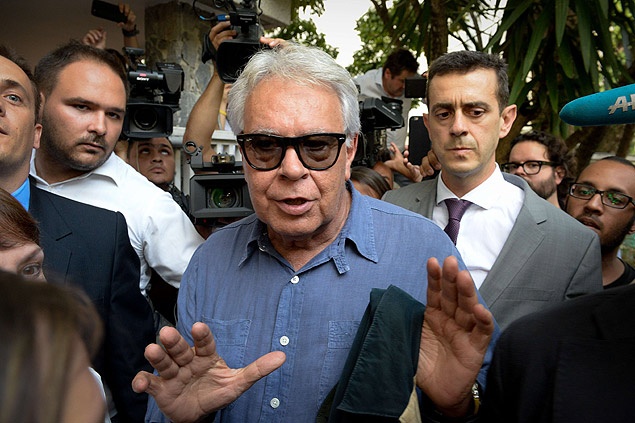Latest Photo Galleries
Brazilian Markets
17h38 Bovespa |
+0,02% | 124.196 |
16h43 Gold |
0,00% | 117 |
17h00 Dollar |
+0,15% | 5,2507 |
16h30 Euro |
+0,49% | 2,65250 |
ADVERTISING
Opinion: Venezuela's Destruction
06/15/2015 - 10h24
Advertising
CLÓVIS ROSSI
FOLHA COLUMNIST
Felipe González, former Spanish prime minister, on his return to Spain after a two-day trip to Venezuela: "Venezuela is a country in the process of destruction."
Was this an exaggeration of one of the countless conspirators that the country's government finds each time it is criticized?
Maybe, but it is more likely a finding of fact that even card-carrying Chavistas couldn't deny.
One example: Jorge Giordani, a minister for a long time with Hugo Chávez and one of Nicolás Maduro's first vice presidents.
He just pointed out to the Aporrea portal, in defense of the Chavez regime, "the serious distortion the Venezuelan economy suffers."
It's a "time bomb," which has many causes, among them "a lack of leadership."
For Giordani, the country has no direction, particularly in the economy. "We are like this: as things come, we will see."
Everybody knows how "things have come" in recent years: record inflation and shortages too, not to mention the collective insecurity in a country with the second highest number of homicides per 100,000 inhabitants, following Honduras.
Institutionally, two analysts from the Center for the Application of Non-Violent Actions and Strategies see the destruction of Venezuela like this:
"During the Hugo Chávez administration, his politics straddled the line of a dictatorship. Today, two years after the death of Chávez, his successor crossed the line from authoritarianism to dictatorship," wrote Srdja Popovic and Victoria Porell.
On a social level, the absurd lack of control over the economy during the Maduro period (although the seeds had been planted by his predecessor) led to a strong threat against the unequivocal social advances of the Hugo Chávez era (1999-2013).
This is clearly shown in the report from Provea (Venezuelan Program of Education and Actions for Human Rights), an NGO that Maduro called upon when he was a union leader.
The president "is causing the biggest setback in social rights that has been seen in decades," Rafael Uzcátegui, the general coordinator of the institution, told "El Nacional."
And added: "If the trend continues, by the end of 2015 we will have in Venezuela the same amount of poor that existed in 2000, when there were 10,954,595 in such a situation."
As the total population of Venezuela is 31.5 million, that means more than a third are poor.
I suspect that the distrust in regards to the Maduro leadership has spread to the highest Bolivarian ranks. Wouldn't this be the explanation for the recently concluded Diosdado Cabello mission to Brazil, to explore agreements?
It is a much more appropriate initiative for Maduro's Executive branch than for the Legislative branch that leads Cabello.
As, according to former minister of planning Giordani, the economy is played on the basis of improvisation, perhaps Cabello has resolved to act.
Even if it is so, they are projects with time-consuming maturation, so the destruction of Venezuela is not going to be interrupted.
Translated by JILL LANGLOIS
Read the article in the original language
| Federico Parra/AFP | ||
 |
||
| Felipe Gonzalez arrives for a meeting with former Mayor Antonio Ledezma -who is serving house arrest- in Caracas |



